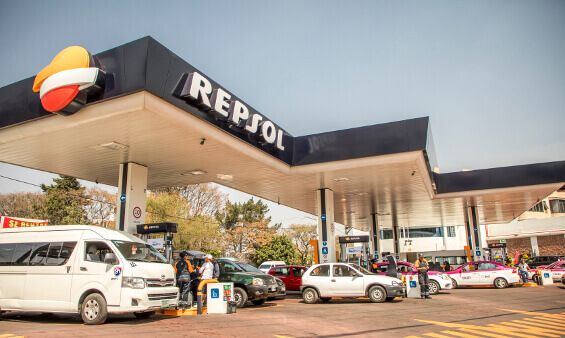Pemex operates 64% of gas stations under the franchise format in Mexico, according to data from the federal government as of December 2020.
These gas stations are supplied by Pemex Transformación Industrial, a subsidiary of Pemex.
The other 36% of the service stations operated under brands other than Pemex with two business models: those that sell Pemex products and those that sell products of different brands imported by agents other than Pemex.
Only 27.6% of imported gasoline is purchased from abroad by agents other than Pemex.
In February of the current year, 9,007 service stations had permission to sell the Pemex brand in Mexico, while among the private companies highlighted by their number of gas stations were: British Petroleum (529), G500 (455), Exxon Mobil (424), Total (257), Repsol (257), Shell (240), Arco (190), Chevron (189) and Gulf (164).
Following the government’s phasing out of gasoline and diesel price controls in 2017, domestic fuel prices are now fully liberalized and largely determined by the market.
However, the Energy Regulatory Commission (CRE) reserves the right to intervene, and Pemex’s sale prices are subject to possible future regulations of the CRE until the Federal Economic Competition Commission (Cofece) determines that there is effective competition. in the wholesale market.
Gas stations
On December 1, 2017, the Ministry of Energy announced that around 19% of the service stations throughout Mexico were no longer Pemex franchises but other national and foreign brands, with the incorporation of approximately 30 new brands in less than one year.
With the increase in the number of fuel brands in Mexico, the oil and petrochemicals industry is expected to invest nearly $ 4 billion in new infrastructure in the areas of storage and transportation by pipelines and railways in the coming years.
Mexican oil exports were for 14.613 million dollars in 2020, a decrease of 34.8% compared to the previous year.
Among the external purchases of Mexico, gasoline stood out with imports for 10,263 million dollars, a fall of 40% at the annual rate.
Other relevant imports were: gaseous natural gas (4,448 million dollars, with a decrease of 16% year-on-year), diesel (4,163 million dollars, a decrease of 47.3%) and liquefied propane gas (1,578 million, a decrease of 5.9 percent).
![]()

